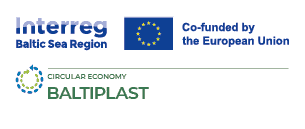
Travel Without a Trace: Fighting Single-Use Plastics in Tourism
13 June 2025
With nearly 80% of tourists traveling to coastal destinations and over 8 million tonnes of plastic entering the ocean each year, the travel and tourism sector plays a significant role in this growing environmental crisis. From plastic-wrapped airline meals and mini shampoo bottles in hotel bathrooms to microplastic-laden wastewater from cruise ships, the reliance on single-use plastic products (SUPPs) is both widespread and harmful.
Yet amid this troubling trend lies a powerful opportunity. Travelers themselves can be a force for positive change. Conscious, everyday decisions made during trips—like packing a refillable water bottle or refusing single-use amenities—can significantly reduce the amount of plastic waste generated. These actions not only lighten your environmental footprint, but also send a signal to the industry that sustainable alternatives are in demand.
There are many easy and effective steps travelers can take. Avoiding travel-sized toiletries by refilling your own containers helps cut down on unnecessary packaging. Bringing your own headphones on flights eliminates the need for disposable plastic-wrapped ones. Picking up small pieces of litter while hiking contributes to cleaner trails and sets a positive example. Investing in durable, repairable travel gear reduces long-term waste and saves money. Opting for glass bottles or aluminum cans over plastic, shopping at local farmers markets with reusable bags, and skipping single-use shampoo bottles in hotels are all simple habits that collectively have a big impact.
Even your food choices matter. Packing your own meals for flights reduces dependence on heavily packaged airline food. Carrying a reusable container when enjoying street food—especially in regions where plastic packaging is the norm—can make a significant difference. Perhaps the easiest of all: bring a refillable water bottle. It’s a small step with substantial environmental benefits, both at home and while traveling.
While individual choices matter, the travel and tourism industry—and policymakers—must also step up. Businesses can start by reducing unnecessary SUPPs through better procurement practices, such as switching to bulk items, refillable systems, and reusable products. Improving plastic collection and disposal infrastructure is crucial, especially in tourist-heavy areas. Clear signage, accessible recycling bins, and partnerships with local waste management can help ensure plastic waste is properly processed.
Policymakers can further support change by enforcing Extended Producer Responsibility (EPR) schemes, making producers accountable for the entire lifecycle of their products. Incentives for businesses using recycled or upcycled materials, along with bans on the most harmful SUPPs, are essential. Supporting circular economy initiatives—like compostable materials, refill systems, and waste-free logistics—will accelerate the shift away from throwaway culture.
Public awareness is equally important. Campaigns that educate tourists about the environmental impact of plastic and empower them to act responsibly can create widespread behavioral change. Airports, booking platforms, hotels, and tour operators are ideal touchpoints for spreading the message. Tourism staff can also play a key role by modeling and encouraging sustainable habits among guests.
The path to a plastic-free travel experience begins with one simple step: awareness. Whether you’re a traveler, tour operator, hotel owner, or policymaker, your actions count. Together, we can make sure our journeys leave lasting memories—not plastic waste.





